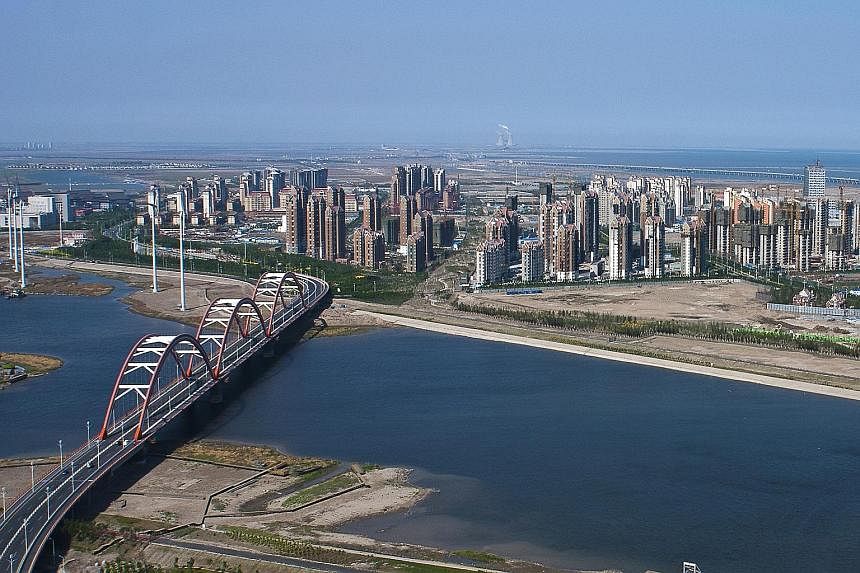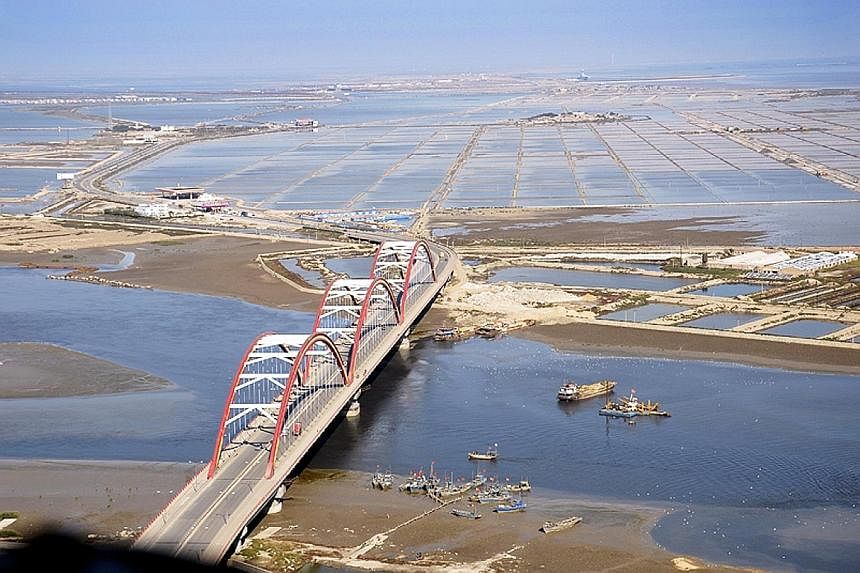MR LIEW Choon Boon professes to dream in Mandarin. With the ease of one also well versed in China's rich culture and history, he frequently draws on a mix of Chinese idioms, proverbs and even poems to express his thoughts and ideas.
Mr Liew, 47, is now in charge of dreaming big for the Tianjin Eco-city (TEC) as he takes over the reins of the Sino-Singapore project on July 1, putting his skills - and interests - to good use.
"It helps that I have prior knowledge of the project because I was overseeing it in the Ministry of National Development (MND) in Singapore and have worked with many Chinese officials in the past," he said.
"I also speak Mandarin fluently, love Chinese culture and can drink baijiu," he added, referring to the fiery sorghum-based liquor favoured by the Chinese.
The avid reader, who has a physics degree from the National University of Singapore, credits his Chinese-educated parents for his love of the culture.
But while the job is one that he thinks will be meaningful, Mr Liew, who headed MND's eco- city project office from 2013, said it meant making the "very difficult decision" of being away from his wife and three sons, aged 14, 12 and eight, who will remain in Singapore so as not to disrupt their studies.
"But my wife and I decided that the role will be good exposure for me as it is challenging and a good learning opportunity. With my interest in Chinese culture, I am also looking forward to it," he said.
Despite this being his first overseas stint, Mr Liew - who has also held a range of senior positions in policy and operational areas in the ministries of education, law and defence - is already raring to go.
He moved into the eco-city last month and has started getting to know its residents at the community centre, yoga classes and even the barber shop - the same one his predecessor, Mr Ho Tong Yen, visits.
He is also considering buying a bicycle, not only to pursue his cycling hobby but to take part in the city's green efforts as well.
Addressing concerns that the TEC will likely fail to meet its target of having 350,000 residents by 2020, Mr Liew emphasised that these are not hard targets.
"The timeline is a planning guide, something that we want to work towards and have the capacity to support. But typically, a city takes between 15 and 20 years to be developed and we're at only the halfway mark," he said.
With the development of the 8 sq km start-up area proceeding smoothly, he is turning his eye to the TEC's next phase: transforming a 4.5 sq km plot of riverfront land into a Marina Bay-inspired business district. This could mean having the business centre set amid lush greenery, including an iconic park similar to Gardens by the Bay, he said.
While this will be a challenging task, the Chinese government's push to integrate the neighbouring regions of Beijing, Tianjin and Hebei, the announcement of a Tianjin free-trade zone and a possible high-speed rail linking the Chinese capital to the TEC have made the city's prospects much brighter, Mr Liew noted.
Meanwhile, he is also working on keeping the ship stable.
"One of the first things I told the staff is xiao gui cao sui," he said, referring to the Chinese adage of following established rules if they have proved sound.
"In this time of transition, my job is, first, to ensure the team feels secure, the firm operates in a stable manner, and to listen to more people, across all levels."
Seven years on, some teething problems - including disagreements between the Singaporean and Chinese sides - have faded.
"When two cultures meet, there will always be gaps at times... But if you're still not on the same page after seven years, you'll never be on the same page."


